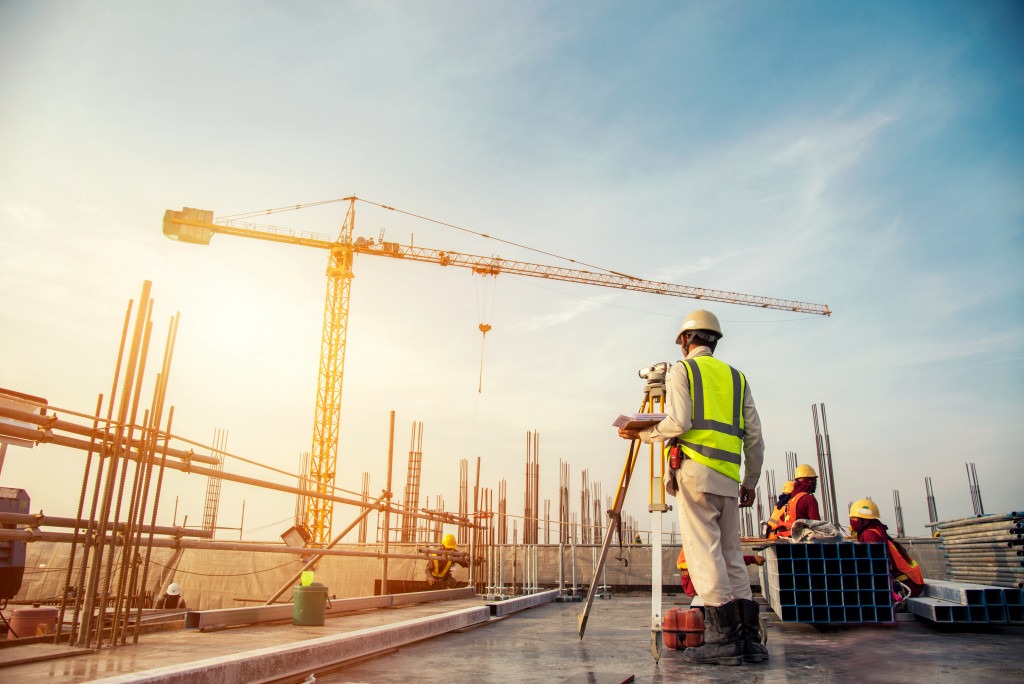Construction businesses have many moving parts, and it can be challenging to keep track of everything while trying to run a successful operation. One area that is often overlooked is compliance with environmental laws.
Federal, state, and local laws regulate how construction businesses dispose of waste, manage stormwater runoff, and control dust and air pollution. Failing to comply with these laws can result in hefty fines; in some cases, the law could shut your business down. This blog post will give you an overview of the most important environmental laws that construction businesses need to be aware of.
The Federal Clean Water Act
The Federal Clean Water Act (CWA) regulates the discharge of pollutants into “navigable waters.” This includes rivers, lakes, streams, wetlands, and coastal waters. The CWA prohibits the discharge of pollutants without a permit from the Environmental Protection Agency (EPA). There are two types of permits that construction businesses can apply for:
- National Pollutant Discharge Elimination System (NPDES) permit covers point source pollution, which comes from a discrete source like a pipe or storm drain.
- Construction General Permit (CGP) covers non-point source pollution, which is pollution that comes from diffuse sources like soil erosion or construction equipment.
The CWA also requires construction businesses to take measures to prevent pollutants from being discharged into navigable waters in the first place. This includes using best management practices (BMPs) and techniques used to avoid or reduce pollution from construction activities. Some common BMPs used in construction include sediment fences, silt sock barriers, and straw bale barriers.
An SWPPP (Stormwater Pollution Prevention Plan) must also be developed and implemented at construction sites that are one acre or larger. The SWPPP outlines the measures that a construction business will take to prevent stormwater runoff from picking up pollutants and carrying them into nearby bodies of water. The SWPPP must be prepared by a qualified professional and approved by the EPA or state agencies. A professional must conduct an SWPPP inspection at least once a month, and any deficiencies must be corrected immediately.

The Federal Clean Air Act
The Federal Clean Air Act (CAA) regulates air emissions from stationary sources like factories and power plants. The CAA does not directly regulate emissions from construction equipment; however, the EPA has promulgated regulations that indirectly control emissions from this type of equipment.
The EPA’s Rule on Construction Equipment Emissions applies to all new diesel-powered construction equipment with engines greater than 25 horsepower. The rule requires manufacturers of this equipment to install emission controls that meet specific standards the EPA sets. In addition, the law requires owners and operators of this equipment to use only low-sulfur diesel fuel and adequately maintain their emission controls through proper servicing and tune-ups. Failure to do so can result in significant fines.
Some states have their own construction equipment emission regulations that are more stringent than the EPA’s Rule. For example, California requires all new diesel-powered construction equipment with engines greater than 50 horsepower to be equipped with emission controls that meet the state’s standards.
State and Local Regulations
In addition to federal regulations, there are also state and local regulations that apply to construction businesses. These regulations can vary significantly from one jurisdiction to another, so construction businesses need to be familiar with the requirements in their specific area. Some states have their own NPDES permitting program; others have programs administered by EPA regional offices.
Local jurisdictions may also have ordinances that regulate stormwater discharge, noise levels, dust emissions, etc. These ordinances are usually enforced by the local building department or health department. Many states also have so-called “right to know” laws that require construction businesses to disclose information about hazardous materials used at their job sites.
Additionally, some states have “siting” laws that give the state authority to approve or deny construction projects based on their potential impact on the environment. For example, a state might deny a construction permit for a new shopping mall if it destroys a wetland. This type of law is designed to prevent environmental damage from happening in the first place.
As a construction business owner or operator, it’s essential to know the various environmental laws that apply to your business. Failing to comply with these laws can result in hefty fines or even the shutdown of your business. By ensuring compliance with federal, state, and local regulations, you can minimize the risk of penalties and keep your business running smoothly. Always consult with an experienced attorney to ensure you are in compliance with the latest laws and regulations.

